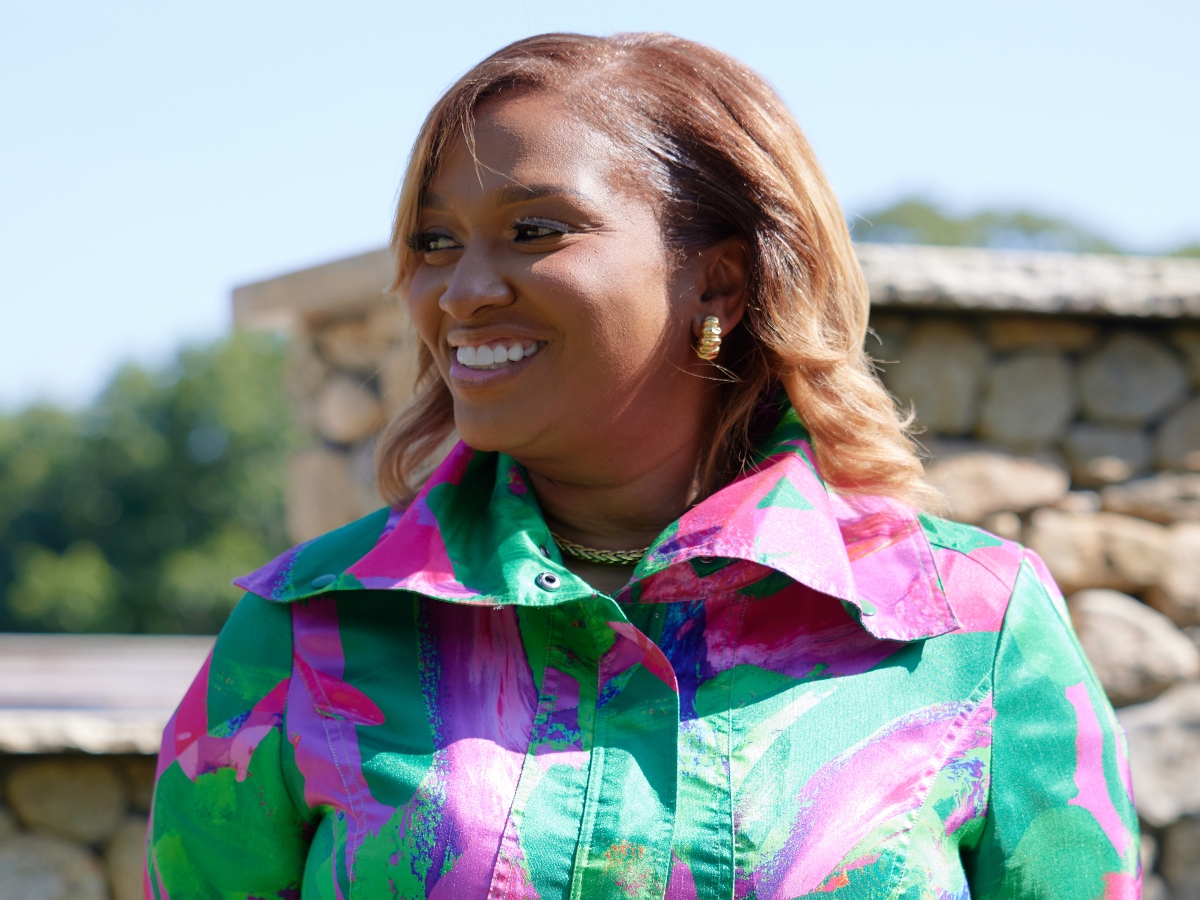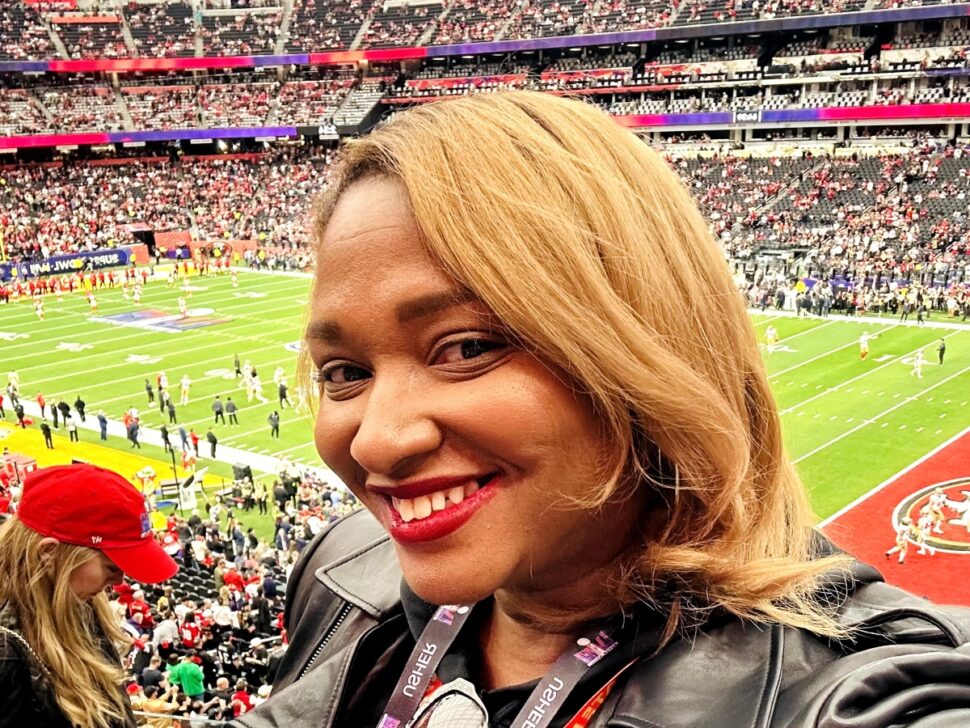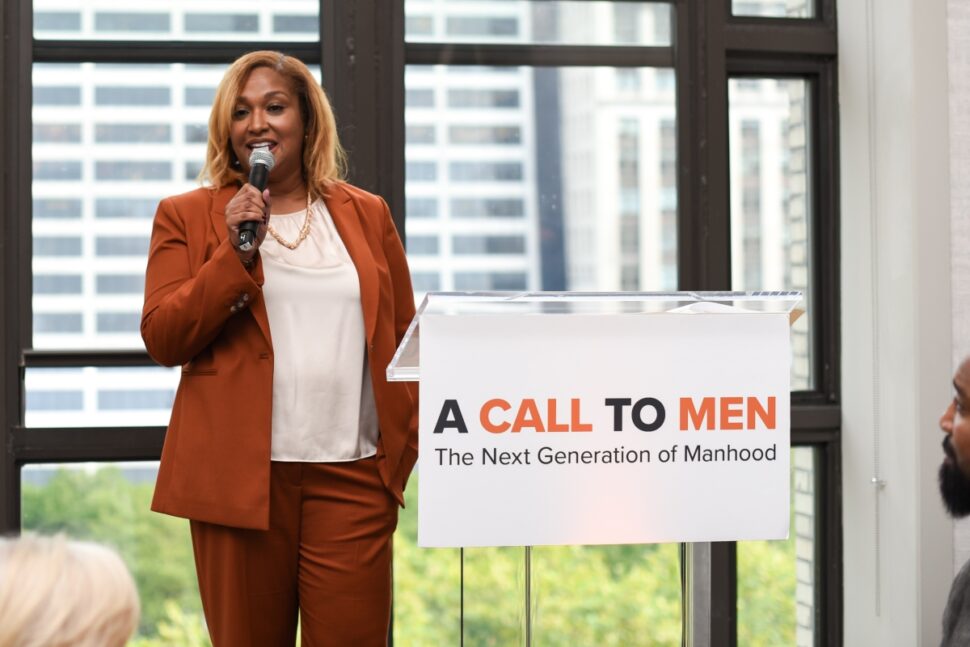Travel
How Travel Fuels Kimya Motley’s Mission In Reshaping Masculinity

When it comes to global advocacy, few voices resonate as powerfully as Kimya Motley’s. As the Chief Communications Officer of A Call to Men, a Black-led nonprofit organization, Motley stands at the forefront of a movement dedicated to promoting healthy, respectful manhood and providing vital educational resources across diverse sectors. Her journey from educator to activist, author, director, and producer has garnered national recognition.
Motley’s ability to weave travel into her mission makes her stand out. Her passion for exploring the world is an integral part of her mission to end violence against women and girls and promote gender equality on a global scale. Travel Noire sat down with Motley to discuss how her global perspective informs her work, allowing her to craft universally applicable and culturally sensitive strategies.
Travel Noire: Your journey from survivor to Chief Communications Officer at A Call to Men is truly inspiring. How has your personal experience shaped your current role’s approach to advocacy and communication?
Kimya Motley: When I started working at A Call to Men, the communications department had a more corporate look, particularly on social media. While that polished corporate image can be important for attracting funders, it wasn’t reaching the people who needed our messaging the most. When I came on board, I wanted to shift our social media approach from corporate to people-first.
From my personal experience as a Black woman, if I saw a page filled with just stats and facts, it wouldn’t speak to me. I wouldn’t see that as the kind of help I needed. During my own difficult times, especially when I was facing abuse, I didn’t know what was happening or how to find answers. I turned to anyone who would listen, and I had just joined Facebook in 2009, so I was searching for help anywhere I could.
TN: You wear many hats as an educator, activist, author, director, and producer. How do you balance these diverse roles while maintaining your focus on fighting violence against women and girls?
KM: All the roles I take on – preventing violence against women and girls, teaching, activism, or directing and producing – ultimately align with that same goal. We don’t usually say “fighting” violence; we say “preventing,”, and all my hats work toward that mission.
I see myself as an educator first because I was a teacher for many years. Activism came after that, followed by my work as a director and producer. But no matter the role, I approach everything through the lens of an educator. I take my experiences and think about the audience I’m speaking to – whether it’s digital or in-person – and how I can use what I’ve learned to help them. It ties back to your first question, just with different types of audiences.
As for balance, I’m not sure if there’s really such a thing. I don’t know anyone whose life is perfectly balanced. Instead, I think the work defines itself.

TN: Your work has taken you across the country, from NFL presentations to documentary filmmaking. How has travel influenced your perspective on gender equality and respectful manhood?
KM: One particular moment comes to mind. I cannot divulge the NFL team, but I was invited to their training camp, and that was the year they used my story as part of the training. When we arrived, I was told that training camp was structured like classes, so the players would come to us for an hour, and then move on to their next session. I was also told not to expect anyone to approach me or say anything afterward because they’d be heading to their next commitment.
During the training, our CEO led the session while I sat to the side and watched how the men interacted with him and with the video that featured my story. I noticed that the quarterback got up and left right after I mentioned what had happened to my daughter, which stood out to me. At the end of the session, even though they were supposed to move on to the next class, the facilitator said, “By the way, Kimya is sitting over there if anyone wants to say hi to her on their way out.”
I didn’t expect much interaction, but out of about 90 players, nearly half—about 45—came up to talk to me. Some thanked me for sharing my story, and some even asked if they could give me a hug. One well-known wide receiver stayed back so he could be the last to speak to me. He asked if we could talk, and of course, I said yes. While our CEO thought we were preparing to leave, this player led me up the steps to an open area where the team could grab lunch. We sat and talked for about an hour and a half, and he missed not just his next session, but probably the one after that too.
TN: In your memoir Born of Violence, you share your powerful story. How has traveling to different communities to share this narrative impacted you and your audiences?
KM: When I first started speaking and sharing my story, my audiences were primarily women. It was important for me to teach them about the dynamics of abuse and how to access resources during that process. But at some point, I realized I was leaving out a whole audience of men, and that realization came after I started working at A Call to Men.
When we think about different communities we go into, I think of the most recent Conference On Crimes Against Women (CCAW) and what our CEO Tony and I did [as keynote speakers] at that event. Tony shared a lot about the Man Box, and I shared my story. At the end, we issued a call to action. I told the men, “I need your help. I need your help to prevent violence against women and girls.” We asked them to stand in solidarity with me. Tony took it further, asking them to walk to the front to show a deeper level of commitment. It was such a powerful moment. There were over 2,600 people in attendance that day, and a good number of them were men. They all came down to the front to stand in solidarity with me, which was beautiful to see.

TN: A Call to Men works with various organizations, from sports leagues to corporations. How do you tailor your message when addressing such diverse groups during your travels?
KM: One of the things that’s important to me is connecting with representatives from the organization or community I’m about to speak to before I craft my message. I don’t have cookie-cutter messages. Even though my story is my story, and that doesn’t change, I want to know who I’m speaking to. I want to understand the pain points within their community that I might be able to address in the keynote or training. Every time I speak, even if there are similarities, each message will be tailored in some way to the audience.
For instance, some communities feel people might not be able to handle the very detailed parts of my story, and I respect that. While my story is important, I’m not here to unnecessarily trigger people. In those cases, I might just say, “My ex-husband shot me multiple times, and he shot my daughter too,” and leave it at that.
This article has been edited and condensed for length and clarity.










